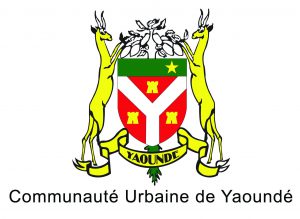
Sustainable Urban Mobility Plan (SUMP)
Le PMUS est un plan stratégique conçu pour répondre aux besoins de mobilité des personnes et des marchandises sur le territoire adapté à la ville de Yaoundé, pour leur assurer une meilleure qualité de vie actuelle et future.

Overview of the project
The SUMP is a strategic plan designed to address the mobility needs of people and goods in the city’s adapted area, to ensure a better quality of life now and in the future. This study was done within the framework of MobiliseYourCity (MYC) which is a global climate initiative that promotes integrated urban mobility planning to maximize the potential for reducing greenhouse gas (GHG) emissions, particularly in cities in the Global South. The SUMP builds on existing planning practices for all transport modes and takes into account the principles of integration, participation and evaluation. The process consists mainly of diagnosis, definition of the vision and objectives, and an action plan, in a participatory approach.
The studies show that there is pressure on urban services, particularly transport, with an inefficient and polluting mobility system, in a context where there is a lack of resources and infrastructure. The surveys show that 3,450,000 metropolitan trips are made daily in Yaoundé, 61 percent of which are by cab, 13 percent by car, 11 percent by motorcycle cab, 9 percent on foot, 3 percent by bus and 2 percent by bicycle. Surveys show that households and individuals spend far too much on mobility, nearly 300 billion CFA francs (US$600 million) per year, while little public money (US$30 million) is invested in the mobility sector. The question is therefore how to redirect a small part of the huge financial flows devoted to the automobile to road maintenance and the development of public transport.
The avenues to be explored are therefore based on :the financial mechanisms (taxation) that will make it possible to increase the resources
- available for the maintenance of roads and sidewalks
- the modernization of the minibus and cab sector;
- the establishment of a large bus network;
- the introduction of an urban train.
A strategic model has been developed to provide an initial estimate of the relevance of these actions, based on a run-of-river scenario, evolving in proportion to population growth, and a baseline scenario involving operations on roads, the maintenance of walking, the upgrading of the craft sector and the development of a public transport network: GHG emission estimates from the strategic model currently yield 212 kg GHG/capita/year, while projections to 2035 yield 368 kg GHG/capita/year for the run-of-river scenario and 334 kg GHG/capita/year for the working scenario. The targets of halving GHGs compared to the run-of-river scenario are not yet reached, which shows that efforts will have to be even more ambitious than those proposed in this first working base scenario.
A CUBE model is used to evaluate the impact of the scenarios and to monitor the evolution of travel in the agglomeration.
Improve mobility and reduce greenhouse gas emissions
Ongoing research
15/01/2018-30/06/2019
- Diagnosis of the current situation
- Development of scenarios
- Estimation of greenhouse gas emissions
- Availability of a modeling tool
The surveys show that 3,450,000 daily metropolitan trips are made in Yaoundé, 61% of which are by cab, 13% by car, 11% by motorcycle cab, 9% by foot, 3% by bus and 2% by bicycle. Estimates of GHG emissions from the strategic model currently give 212 kg of GHG/capita/year, while forecasts in 2035 give 368 kg of GHG/capita/year for the business-as-usual scenario and 334 kg of GHG/capita/year for the working scenario.
European Union with the MobiliseyourCity project.
organisation

The Yaounde Urban Community is a decentralized territorial authority that manages local affairs under the supervision of the Cameroonian State in order to ensure the economic, social and cultural development of the populations of the city of Yaounde.
- French Development Agency





